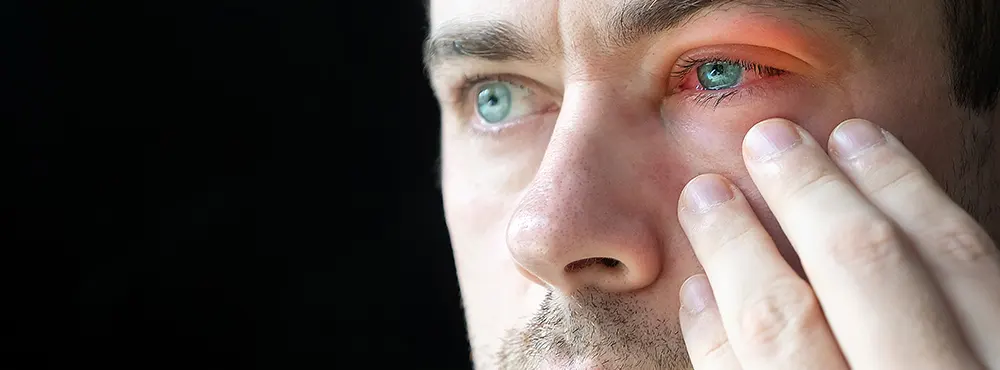How do you get conjunctivitis?
Conjunctivitis (also known as pink eye) occurs when the thin, clear overcoat of the white area of the eye and inside the eyelids (conjunctiva) become inflamed.
Early signs of conjunctivitis include itchy and irritated eyes. The eyes will also slowly turn from a light veiny pink, to a more angry red with more pronounced veins. Although it may look a little scary, generally speaking, conjunctivitis can be uncomfortable but not usually painful. It is the appearance of red eye that tends to distress most people and cause embarrassment. However, it can be cleared very quickly if treated immediately and the right precautions are taken. In most cases, conjunctivitis is either caused by an allergy (allergic conjunctivitis), bacteria (bacterial conjunctivitis) or virus (viral conjunctivitis).

 Offers
Offers Account
Account
 Favorite
Favorite
 Basket
Basket

 OFFERS
OFFERS
















